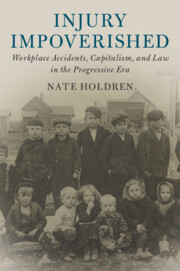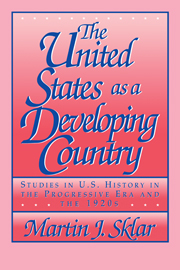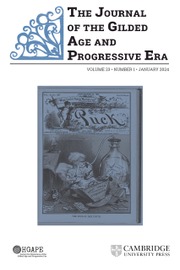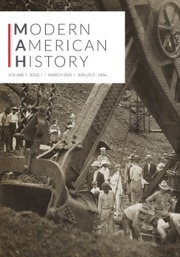Injury Impoverished
The late nineteenth- and early twentieth-century US economy maimed and killed employees at an astronomically high rate, while the legal system left the injured and their loved ones with little recourse. In the 1910s, US states enacted workers' compensation laws, which required employers to pay a portion of the financial costs of workplace injuries. Nate Holdren uses a range of archival materials, interdisciplinary theoretical perspectives, and compelling narration to criticize the shortcomings of these laws. While compensation laws were a limited improvement for employees in economic terms, Holdren argues that these laws created new forms of inequality, causing people with disabilities to lose their jobs, while also resulting in new forms of inhumanity. Ultimately, this study raises questions about law and class and about when and whether our economy and our legal system produce justice or injustice.
- Approaches Gilded Age compensation laws from a critical perspective
- Shows how gender, disability, and class intersect in the issue of workplace injury
- Offers tools and concepts to analyze the complexity of justice and injustice
Reviews & endorsements
'Charting the shift from the tyranny of the trial to the tyranny of the (actuarial) table, Nate Holdren illuminates the biopolitics behind workers' compensation. Deeply humane, Injury Impoverished joins theory to storytelling to place the history of disability into conversation with the history of capitalism, rejecting the commodification of life.' Eileen Boris, author of Making the Woman Worker: Precarious Labor and the Fight for Global Standards, 1919-2019
'Impoverished Injury masterfully melds acute historical analysis with insightful social theory to tell a compelling tale about the legal commodification of labor, the moral thinning of injury law, and the horrific ordeal of everyday Americans coping with workplace injuries.' Ajay K. Mehrotra, American Bar Foundation & Northwestern University
'Holdren's demonstration of how the law of accidents and the growth of capitalism abstracted away from the lived realities of workplace injuries is brilliantly argued, and a gripping, at times haunting, reading. A history of moral imagination, it is a work of moral imagination itself.' Jonathan Levy, author of Ages of American Capitalism
'Meticulous and gripping in equal parts, Injury Impoverished offers a compelling and beautifully written history of the emergence of workers' compensation law in the United States. More than that, however, this book delivers a flash of lightning that illuminates the precise legal contours of the terrifying machine that dismembered and reprocessed the American working class during the first decades of the twentieth century. Essential reading for every cog in the machine.' Rose Sydney Parfitt, Kent Law School, and author of The Process of International Legal Reproduction: Inequality, Historiography, Resistance
Product details
April 2020Adobe eBook Reader
9781108591560
0 pages
This ISBN is for an eBook version which is distributed on our behalf by a third party.
Table of Contents
- Introduction: injuries and abstractions
- Part I. The Eclipse of Recognition and The Rise of The Tyranny of The Table:
- 1. Commodification and recognition within the tyranny of the trial
- 2. Injury impoverished
- 3. Suffering and the price of life and limb
- Interlude: trampler and tramped-on in the Cherry Mine fire
- Part II. New Machineries of Injustice:
- 4. The disabling power of law and market
- 5. Insuring injustice
- 6. Discrimination technicians and human weeding
- Conclusion: resistance and aftermath
- Coda: narrative, machinery, law.








